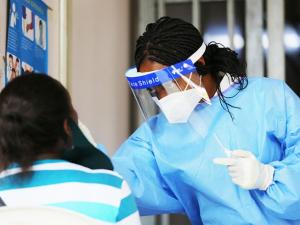
Over 700 Covid-19 patients admitted for home-based care
The Rwanda Biomedical Centre (RBC) has revealed that 762 Covid-19 patients have been admitted to home-based care.
Of these, according to RBC, 337 have already recovered.
The initiative began in a pilot phase at the beginning of last month, before being rolled-out country-wide in September.
According to Sabin Nsanzimana, Director General of RBC, home-based care for Covid-19 patients (HBC) has been effective.
“The initiative has been effective. As a matter of fact, so far we have not recorded any evidence of in-house infection transmission. All positive cases with negative household contacts recovered without passing on the infection,
However, Nsanzimana said there are still challenges in this regard, especially households that do not meet the required eligibility criteria like those in crowded areas with very high risk of promiscuity and infection spread.
He went on to highlight that “more is being done to fast-track countrywide scale-up of home-based care approach through training human resources, ensuring ownership and community engagement and mobilizing logistics among others.”
Currently, Kenya is one of the countries using HBC to ease the burden of excess patients admitted in hospitals, creating room for patients who need critical care.
Things you need to know about HBC
According to RBC, home-based care (HBC) is for patients who are asymptomatic and those with mild symptoms, and they should not be above 65 years of age.
Selecting a Covid-19 patient for HBC is informed by an assessment of the suitability of the patient’s home environment.
Such homes should not have people that are at high risk of complications from the pandemic for example people above 65 years of age; those who have chronic heart, lung, or kidney conditions.
It must also have adequate toilets and bathrooms facilities on the premises or in the compound; and a separate well-ventilated bedroom or isolation space where the patient can recover without sharing immediate space with others.
Community Health Workers (CHWs) are responsible for educating the affected household on home-based isolation, care and infection prevention and control and follow-up the patient on a daily basis.
There should also be another responsible adult in the household.
In case of worsening symptoms, patients or caregivers can report this, and the medics may react by organising the patient’s referral to a facility that can provide care for critically ill patients.
All the other household members are high-risk contacts and will be on self-quarantine, according to RBC.
Regardless how fast they improve, patients on home-based care must be in isolation at home for at least 14 days. After that period, medics can find out whether these patients have recovered. The recovery is confirmed by two negative results of Covid-19 RT-PCR.
